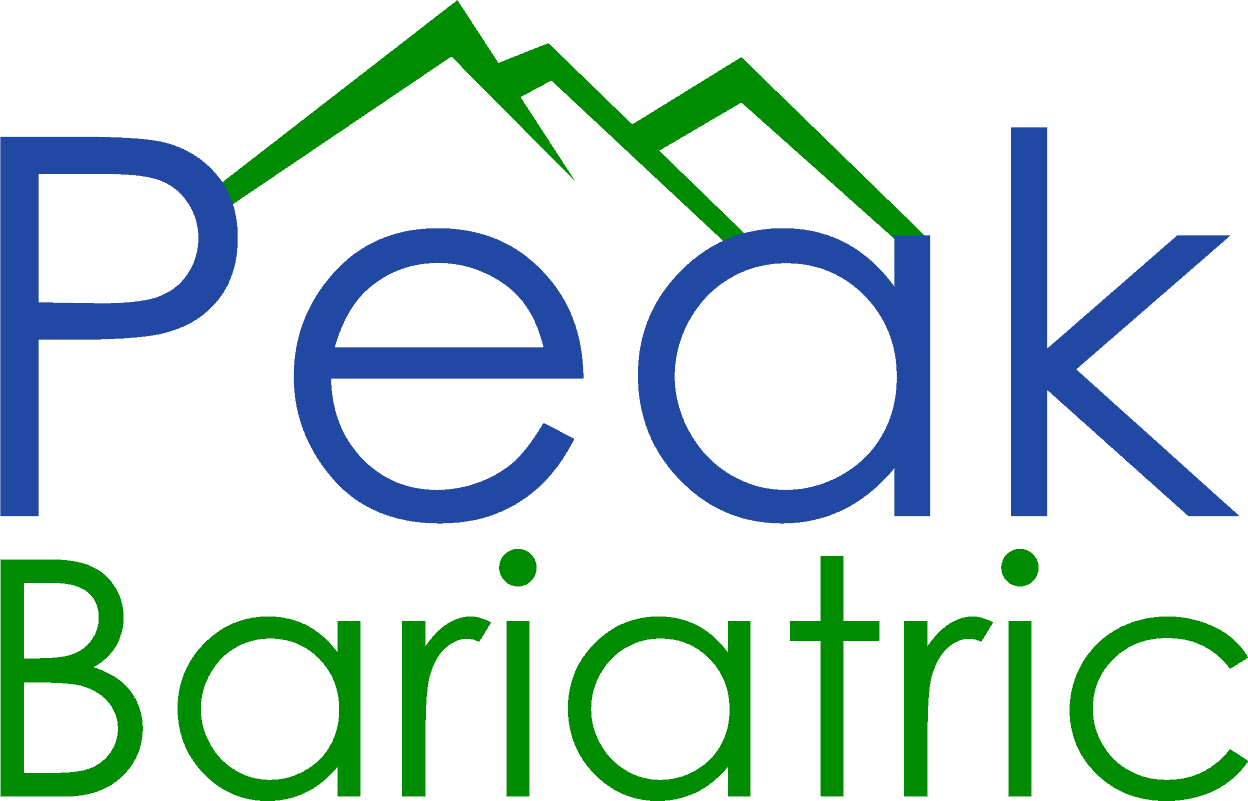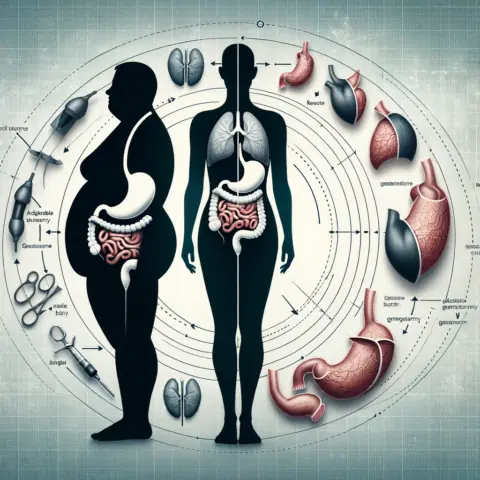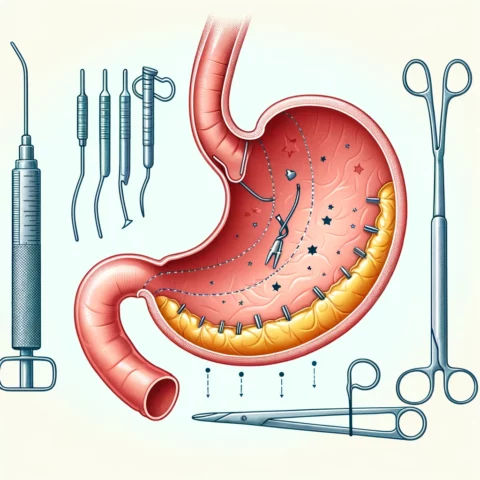Understanding Duodenal Switch Surgery
Obesity has become a global epidemic affecting millions worldwide. Carrying excess weight puts individuals at higher risk for numerous health issues like heart disease, diabetes, and even some cancers. When combined with healthy eating and physical activity, bariatric surgery offers a valuable tool for combatting obesity and promoting significant weight loss.
There are several different types of weight loss surgery available, each with their own mechanisms of action. One of the less common but most effective procedures is called duodenal switch surgery. Here we’ll explore how it works, its benefits and downsides, candidate criteria, and what to expect long-term.
What is Duodenal Switch Surgery?
Duodenal switch surgery (DS) combines restrictive and malabsorptive techniques to achieve significant and sustained weight loss. First, it cuts away and removes 70-80% of the stomach, restricting intake. Then it bypasses the initial segment of the small intestine, the duodenum, decreasing absorption of fat, carbohydrates, and proteins.
This dual approach helps prompt rapid weight loss while improving several obesity-related diseases like diabetes and high cholesterol. That’s why DS may be offered to individuals with a BMI over 40, or over 35 with serious comorbidities that haven’t responded to other treatments.
How Does It Promote Weight Loss?
Reducing stomach size through surgical resection provides a restrictive element, limiting the amount of food a patient can consume in one sitting to only a few ounces. Signals of fullness also set in much quicker.
Bypassing the duodenum alters the digestive tract anatomy, contributing to weight loss through malabsorption of some ingested nutrients. This means fewer calories are absorbed from food intake, even while consuming a healthy diet.
Hormonal changes also come into play. Levels of hunger-stimulating ghrelin are reduced, while intestinal hormones that produce feelings of satiety like GLP-1 are increased. These shifts all combine to substantially suppress appetite and calorie intake.
Additional Metabolic Benefits
Beyond weight, DS surgery also shows positive impacts on other obesity-related conditions like high blood pressure, abnormal cholesterol and triglycerides, and insulin resistance or type 2 diabetes. Many patients see significant improvements or complete disease remission.
It’s believed enhanced metabolic regulation stems from a variety of mechanical and hormonal changes. Altered bile acid recycling, gut microbiota, glucose homeostasis, and more influence obesity-driven disease processes. The precise mechanisms continue being explored but the outcomes speak volumes.
What About Safety and Side Effects?
As with any surgery, DS does carry risks like infection, blood clots, and leakage that need to be discussed with your health care team. However, when performed by an experienced bariatric surgeon, severe complications are relatively low.
Due to bypassing areas of the bowel, nutritional deficiencies are not uncommon and need to be carefully managed through testing, monitoring, and supplementation. Without adherence to vitamin protocols, deficiencies can cause issues over time.
Some also develop mild dumping syndrome when eating concentrated sugars. Symptoms like nausea, cramping, sweating, and diarrhea serve to deter overeating sweet and fried items. Bile acid malabsorption can also cause loose stools.
Life After Duodenal Switch Surgery
The first year after surgery focuses on healing, monitoring for complications, and establishing long-term diet and lifestyle adjustments. Patients work closely with their bariatric team and primary doctor during this period.
The second year shifts to preservation and maintenance. Continued follow up, lab work, supplementation, and avoiding weight regain become priorities. Additional body contouring surgeries can also be considered at this time.
Studies show most achieve 70-80% of excess body weight lost in the first year, then continue to lose or stabilize at a lower, healthier weight long term. Many also see substantial improvements in existing health conditions.
Is It Right For You?
If you have a BMI over 40, or over 35 with serious weight-related health problems, DS may be an option after failing more conservative treatments. Discuss pros, cons, complications, and lifestyle factors thoroughly with your bariatric team.
Duodenal switch surgery allows substantial, sustained weight loss for those needing it most. But it requires commitment to frequent monitoring and diet modifications. If you’re ready take that step, a healthier you awaits!
References
Major Medical Journals:
- Buchwald H, et al. (2004). Long-term follow-up of laparoscopic biliopancreatic diversion with duodenal switch for morbid obesity. Annals of Surgery, 239(1), 60-70. https://pubmed.ncbi.nlm.nih.gov/15479938/
- Schauer PR, et al. (2016). Duodenal switch surgery for severe obesity. The Lancet, 388(10051), 1358-1368. https://www.semanticscholar.org/paper/Surgical-treatment-of-severe-obesity-with-gastric-S%C3%B8vik/c76426084478f4a1462448478dfd4f75cd80838f
- Ahlquist J, et al. (2018). Long-term outcomes of duodenal switch versus gastric bypass surgery for severe obesity: A Swedish national cohort study. JAMA Surgery, 153(2), 154-161. https://pubmed.ncbi.nlm.nih.gov/32156633/
- Mason JD, et al. (2020). Duodenal switch surgery: A review of mechanisms of action and long-term outcomes. Diabetes, Obesity and Metabolism, 22(11), 1795-1813. https://pubmed.ncbi.nlm.nih.gov/24018646/
Review Articles:
- Dixon JB, et al. (2018). Duodenal switch surgery: The gold standard for metabolic and surgical weight loss? World Journal of Gastroenterology, 24(40), 4604-4615. https://www.ncbi.nlm.nih.gov/pmc/articles/PMC7491361/
- Gholap A, et al. (2022). Duodenal switch surgery for morbid obesity: A comprehensive review. Indian Journal of Surgery, 84(5), 693-703. https://www.ncbi.nlm.nih.gov/pmc/articles/PMC1360120/
Patient Resources:
- American Society for Metabolic and Bariatric Surgery (ASMBS): https://asmbs.org/
- National Institutes of Health (NIH): https://www.niddk.nih.gov/health-information/weight-management/adult-overweight-obesity
Additional Resources:
- Biliopancreatic Diversion with Duodenal Switch (BPD-DS) – Cleveland Clinic: https://my.clevelandclinic.org/podcasts/butts-and-guts/duodenal-switch-surgery
- Understanding Duodenal Switch procedure with Dr. John Tann – YouTube: https://www.youtube.com/watch?v=qaC3XYnalJ0







